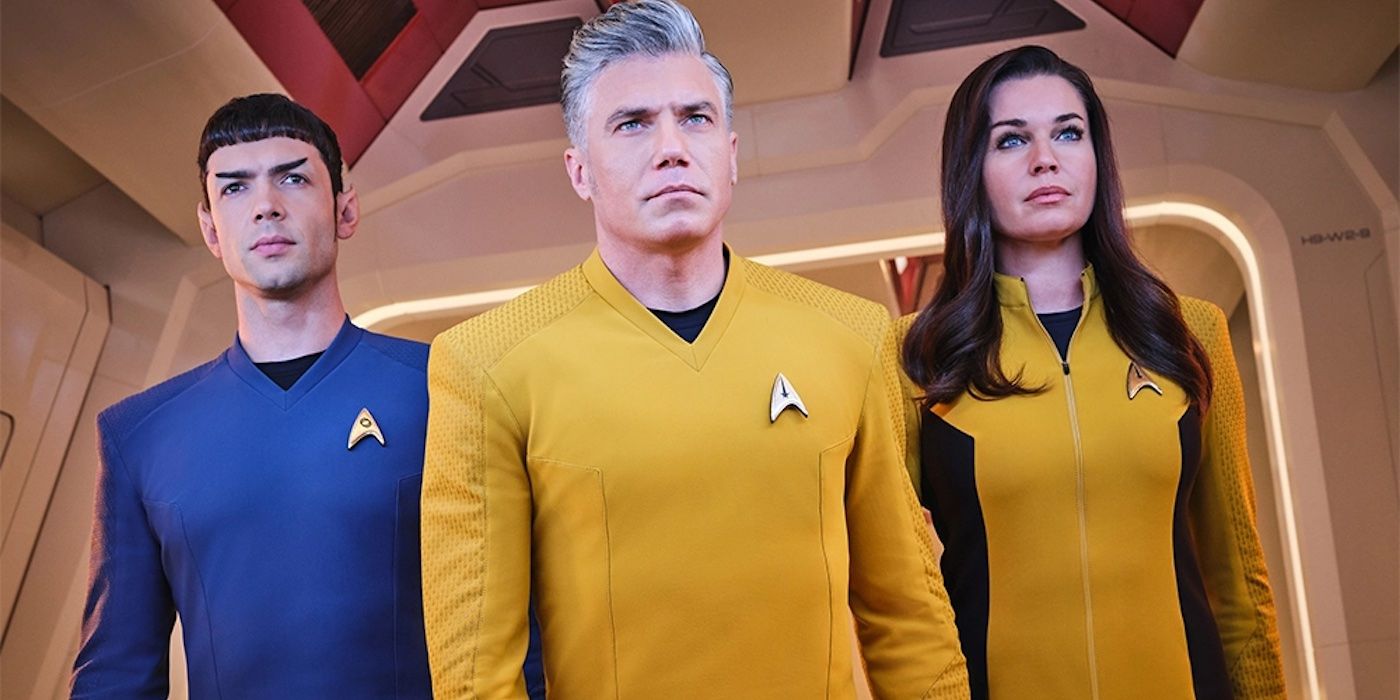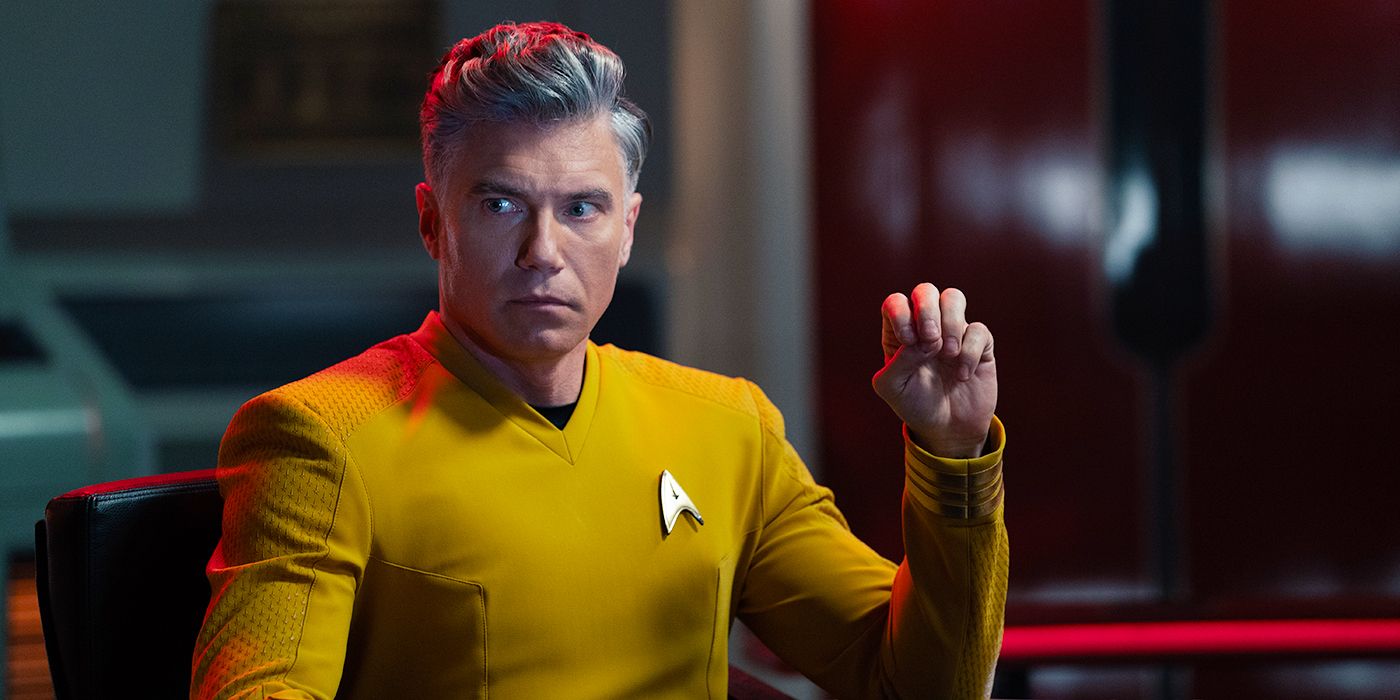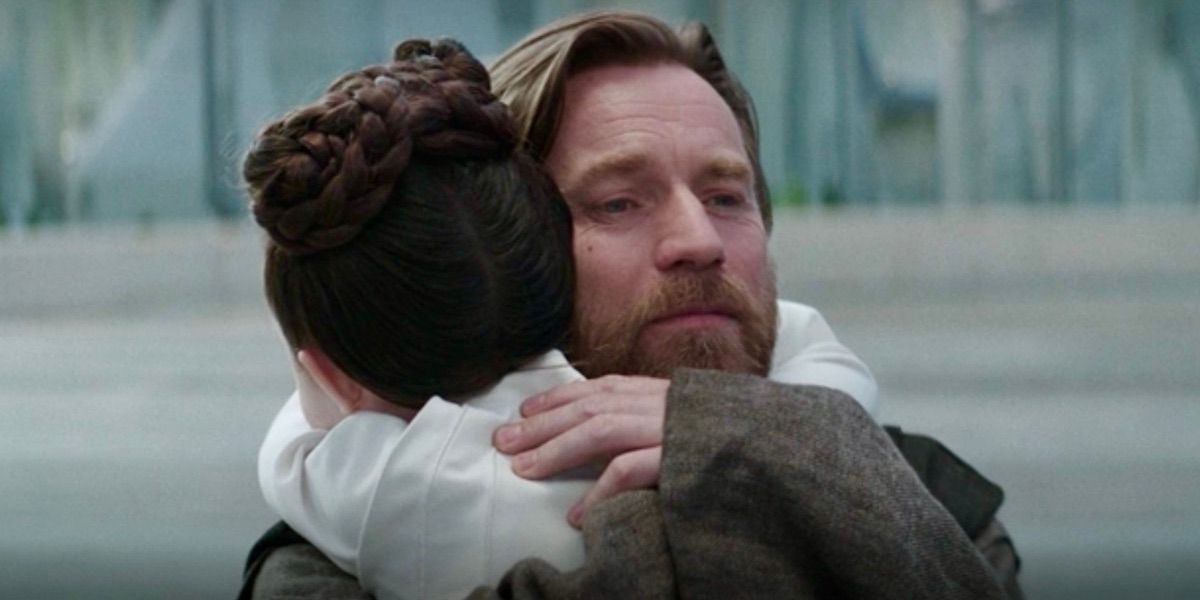The rivalry between "Star" franchises is one of the weirdest things in pop culture. Comparing Star Trek and Star Wars isn't really something that makes all that much sense, seeing as they are completely different from one another. Of course, they are both works that fall under the guise of the science fiction genre and are both set in a technologically advanced far away era related to our own (either in the future or a long time ago), but, apart from that, the only other thing they do have in common as a whole is that they are both, well, awesome. It's like asking someone to choose between the Beatles and the Stones — you might have your personal preference and that is fair, but you can dig both. Just don't ask which show is each of the bands, because that would be cruel.
Weirdly enough, though, they have been both venturing into the same territory in their more recent shows: nostalgia. That seems to be the key word for the pop culture landscape in the past years, this constant fondness and longing for times that were (almost as if they were surely better that we live now). This is a tendency seen from galaxies far, far away, to subatomic realms in quantum physics where superheroes venture. It's common to feel the need to go back in time once in a while, and both "Stars" have been attempting to make their own new universes out of it. Trek, though, has been doing a much better job than Wars.
Star Wars just came from what seems like a successful season of Obi-Wan Kenobi and is currently gearing up to return to the streaming screens with Andor, while Star Trek is coming off an acclaimed season of its new show, Strange New Worlds. Both of their recent shows are, in what is certainly a weird coincidence, about the adventures of a former main character before the events of their flagship properties, Jedi Master Obi-Wan Kenobi (Ewan McGregor) and captain Christopher Pike (Anson Mount). We start both of them off already knowing how their overall story ends (with the events of Star Wars: A New Hope and Star Trek: The Original Series). But they are completely different as to how they approach the nostalgia that is naturally inherent to their stories.
Star Trek has been on a streak of good shows as of late, led by writers and producers Akiva Goldsman and Alex Kurtzman. The new CBS-built universe on Paramount+ currently consists of four series, each set in a different era of the franchise's chronology: Discovery, Picard, the animation Lower Decks and, of course, the newcomer Strange New Worlds. There are also minor shows, but these are the flagships. And, even though they are four series set in the same universe, their viewing experience gets very rarely boring. The reason for that is simple: clever in-series writing and a well established set of franchise core themes.
Although the Trek shows do share the same universe and make plenty of references to one another, they very rarely depend on one another. Each of them tells their own story to their own ends, making use of their own devices to do so — which is important, because every era of Star Trek has its own idiosyncrasies. That happens, first, because of the typically episodic structure of the shows. Picard does break that mold, telling a more linear story focused on Jean-Luc Picard (Sir Patrick Stewart) instead of keeping with The Next Generation's adventure-of-the-week type of storytelling, but its seasons do tell stories that start and end into themselves. As to the other three series, they do have major journeys told each season which gear toward and endgame, but the weekly stories are what make them fun.
That only happens because of the basic premise of the Star Trek franchise: to seek out new life, new civilizations and boldly go where no one has gone before. If you insist on bringing the story to the same old planets and the same old characters, then, well, you're not boldly going anywhere. The main characters, then, become the very values and themes the franchise promotes: the use of logic and science to solve problems and the triumph of the human spirit through cooperation. This is what Star Trek is all about, and even its non-episodic shows weave those values through their narratives. They are not things the heroes find along the way, quite the contrary. The heroes are heroes because they aspire to uphold such values as good as they can. In the end, the stories told are not about the characters themselves, but rather about those core values, thus building an optimistic view of our world that has become the franchise's trademark. Discovery is perhaps the best example of this trait, relying heavily on nostalgia for The Original Series along its second season and doing such a good job that, in the end, the Enterprise core ended up getting its own spin-off show, Strange New Worlds.
Now, leaving Federation space and the authority of Starfleet and going to a galaxy far, far away, we find another franchise in a much different state. Star Wars is arguably the biggest juggernaut in pop culture, a dominant force in every arena it decides to play in, but it's currently marooned in a never ending cycle of self-feeding nostalgia - and not the good kind. Just like Star Trek, it also has a set of core themes (the hero's journey, generational conflict, political regimes, etc.), but its inception happened in film, not on television. That, by itself, dictates that a different way of storytelling needs to be employed, one much more character-driven. And that's okay, different stories ask for different storytelling tools.
The Star Wars universe is vast and can expand in any direction. There are multiple planets, organizations, institutions and whatnot, each with its own set of rules and, usually, the typical Star Wars story talks about the conflict between them (hence the "wars" in the title). Unfortunately, though, the recent shows have set aside the basic premises of the franchise in order to satisfy the most nostalgic part of the fandom.
Of course, it's great to know that Luke Skywalker (Mark Hamill) and Ahsoka Tano (Rosario Dawson) have met, and the recent duel between Boba Fett (Temuera Morrison) and Cad Bane (Corey Burton) was indeed climatic and emotional. But in order for those moments to happen, there are so many things that test the viewers' beliefs in how that very universe functions, it's hard to believe those were indeed the best ways for the story to unfold.
In Obi-Wan Kenobi, the idea of Ben Kenobi undergoing a crisis of faith is a good one, but how much of the dynamics of his duty on Tatooine had to be tweaked to get him out of Tatooine to face Darth Vader (Hayden Christensen)? It's precisely the respect for the rules of the Star Wars universe that makes, for example, the Kenobi novel, by John Jackson Miller, great and the Disney+ show difficult pill to swallow. The franchise is being conducted in a way that the focus seems to be making classic characters meet just because of how cool that would be, not how that would serve that particular universe or storyline. It's not about hope or generational conflicts anymore, it's about Obi-Wan gratuitously saying his meme catchphrase and "rhyming" with the movies.
Nostalgia is something that, nowadays, is very difficult to escape. Even original stories are mostly about how we felt in a specific time of the past. Working it in franchise territory is kind of mandatory, people feel safe knowing that the current entertainment landscape pays respect to what came before. Sustaining a specific way of storytelling is definitely not harmful within a shared universe, quite the contrary. We expect Star Wars shows to be a certain way, as it happens with Star Trek, too. But when nostalgia is the very point of the story being told, does it really deserve to be told at all? Aren't those universes, and the big names behind them, better than that?



